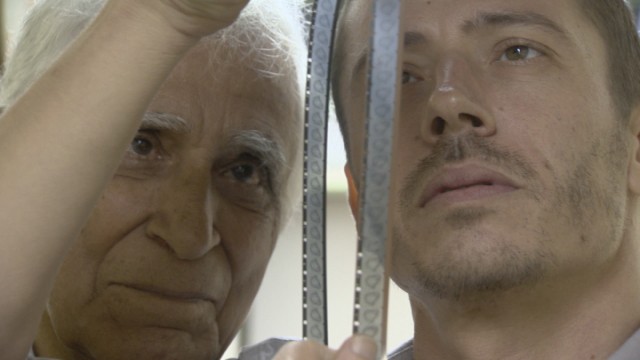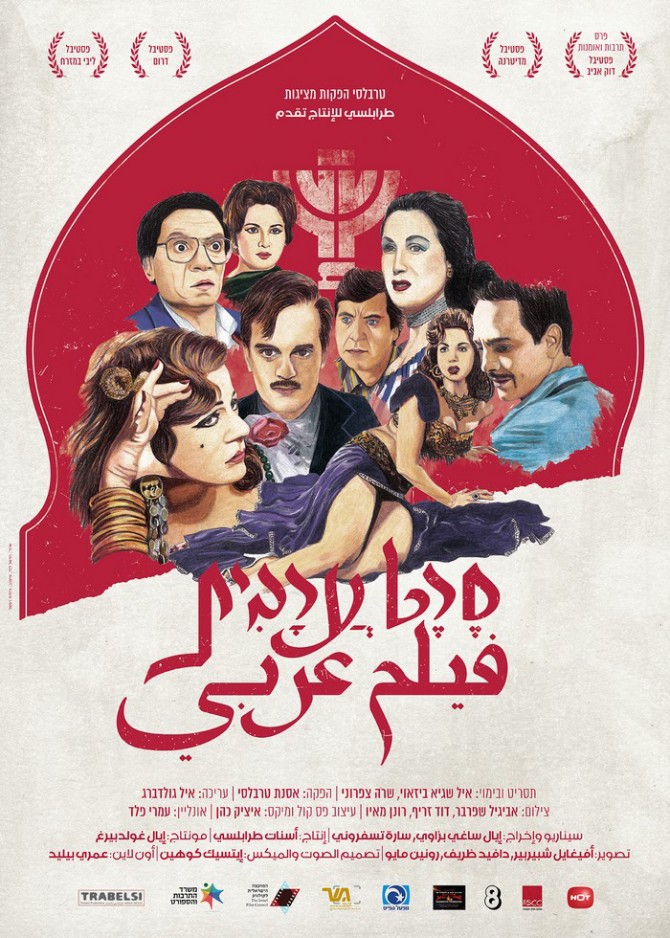‘Arabic Movie’ explores Israeli cultural phenomenon
By Linda B. Glaser
Israel and Egypt were at war in 1968, but every Friday night families across Israel gathered in their homes to watch Arabic-language Egyptian movies; Palestinians did as well. “Arabic Movie,” a documentary directed by Sara Tsifroni and Eyal Sagui Bizawi and shown Feb. 12 at Cornell Cinema, offers a glimpse into this phenomenon of cultural connection that lasted more than a decade, exploring why the films were shown and how they were obtained. After the screening, Bizawi answered questions from the audience.
The documentary explained that Israeli television broadcast the films as entertainment for Palestinians on the West Bank, but demands for Hebrew subtitles made it quickly clear that the films were equally popular with Israelis. Everyone in Israel watched, including statesmen like Moshe Dayan and Shimon Peres.
For Jews who had come to Israel as refugees from Arabic-speaking countries, the movies were a taste of the homes to which they could never return, said Bizawi; Egyptian films were shown all over the Arabic world. One Egyptian-Jewish woman whose son had been killed fighting for Israel in a battle with Egyptian forces during the 1973 Arab-Israeli War said she nevertheless couldn’t hate the Egyptians: They shared the same culture.
But getting the films from a country with which Israel was at war was no easy task. Many of those interviewed for the film refused to say how it had been accomplished. Others boiled it down to one word: “relationships.” The clandestine process involved agreements with Palestinian and Jordanian theater owners, who would pass the films to the Israelis to copy and return. One scene in the film shows the archives of the films at the Israeli Broadcasting Authority, shelf upon shelf of film reels, some of which had been edited to please Israeli censors. “A kiss could be three seconds long and no more,” explained one official.
For some Israelis, the Egyptian movies were high comedy, and one Israeli television program parodies the films. But the documentary is not a criticism of Egyptian cinema, said Bizawi: “It’s about how we watched it, what we see and didn’t see.”
The films are still broadcast every Friday afternoon, said Bizawi, but it’s no longer a shared cultural experience in Israel because there are now so many channels to watch. “In my mom’s place you have to watch it, but not anymore in every house,” he said.
When asked why he makes films, Bizawi said, “It’s an urge I have to put question marks on what seems to be obvious. What’s obvious is that we watched Arabic movies but no one asked: This was our enemy, why did we do it? We sent our kids to fight against them but sat our kids to watch their films every Friday afternoon.
“Culture by itself is not enough to bring peace,” he added. “If you want to enjoy someone’s culture you have to know him, his hopes and fears. It’s not enough to watch his dance.” And while Bizawi says he doesn’t have a lot of faith in governments, he still has hope for peace.
The Cornell Cinema screening of “Arabic Movie” was co-sponsored by the Department of Near Eastern Studies and the Jewish Studies Program, with the support from the Hope and Eli Hurowitz Fund.
Linda B. Glaser is a staff writer for the College of Arts and Sciences.
Media Contact
Get Cornell news delivered right to your inbox.
Subscribe


